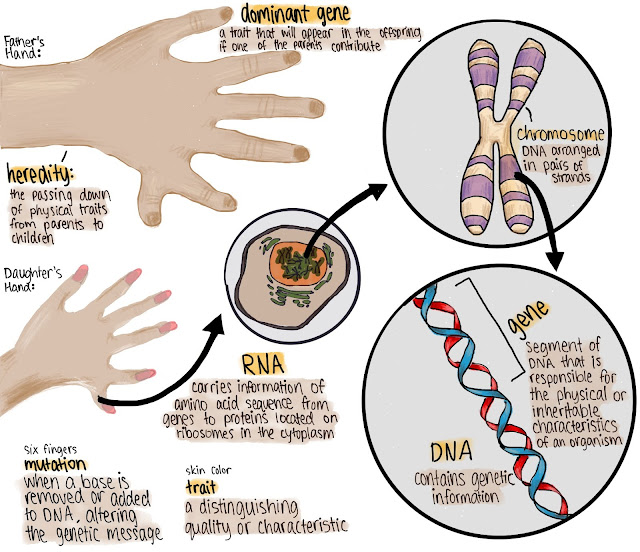"Yesterday we did a lab about genetically mutated species. Each table had a different mutation, and we all tried to get candy. The Candy represented Food in the Wild. Some mutations helped like having an extra hand, but some mutations killed, like fork fingers. I learned that mutations can help and hurt the animals in an environment. If we do not take care of the wild, bad mutations can develop. In the end, most survive, but future mutations might end up driving some species extinct."
- Emily H. and Lindy C.
"We did a squirrel mutation lab on April 5, 2017. In this lab, we gave squirrels "mutations" such as fork fingers, three hands, and no thumbs. The worst one was the fork fingers because it was very hard for the "squirrel" to get food. The best one was the three hands because it was already easy with two hands, and it got even easier with three. We learned that mutations may be beneficial for the animal or bad for the squirrel."
- Sownthar P. and Mihir C.
"Yesterday, we did a simulation relating to mutations. Each group was a squirrel that was mutated differently, and we had to collect and open candy (food) from a common food source. I learned that mutations are different form adaptations because mutations are when DNA gets changed in good or bad ways. Organisms that had helpful mutations actually survived and the organisms that had mutations that were a hindrance to their food-eating ability died out. Also, food that was easier to consume usually ran out more."
- Prerana
*Special thanks to all the parents that donated candy for this lab. We really appreciate it!



